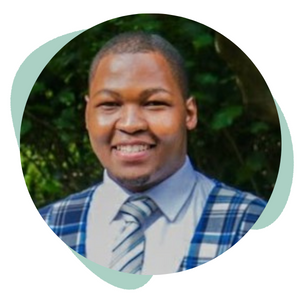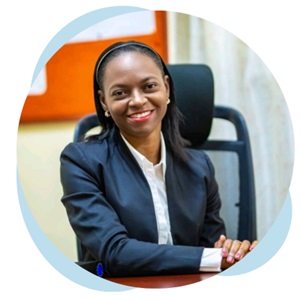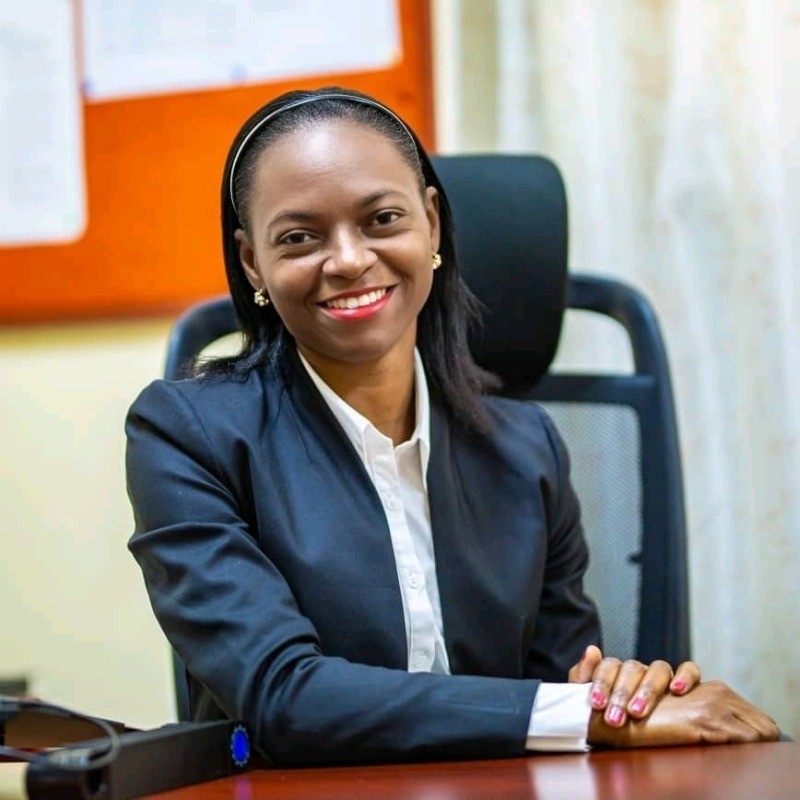In the realm of global health leadership, the echoing sentiments of imposter syndrome often resonate in the silent corners of conference rooms, virtual meetings, and personal reflections. Despite illustrious achievements, many women leaders find themselves questioning their worth, wondering if they truly belong in the leadership spaces they’ve rightfully earned. At WomenLift Health, through our PowerUp Workshop series, we seek not just to recognize this profound challenge but to confront it head-on.
Our Communication Manager Liberty Kituu sat down with Prudence Masako, the dynamic country director for CARE Tanzania and an accomplished Mentor to our 2023 East Africa Leadership journey, who is no stranger to these feelings. Yet, her journey, marked by perseverance, resilience, and an unwavering commitment to her mission, stands as a testament to what women can achieve when they break the chains of self-doubt. As we dive deep into the intricacies of imposter syndrome through our series, Prudence’s story offers both a mirror and a window: a reflection of shared struggles and a glimpse into a world where they can be surmounted.
Join us as we embark on this enlightening exploration, unearthing personal narratives, sharing invaluable insights, and building a community where every woman leader recognizes her worth and claims her space.

Liberty Kituu: Can you share a pivotal moment in your career when you felt imposter syndrome the most? How did you navigate that situation?

Dealing with imposter syndrome was particularly tough while leading the development of nutrition training guidelines for a significant donor-funded initiative. Working with senior nutritionists, each with over three decades of experience, amplified my sense of inadequacy. As a young professional, matching the expertise of seasoned supervisors and meeting a tight six-month deadline was a formidable challenge that heightened my imposter syndrome. To navigate this, I practiced self-reflection, engaged in positive affirmations, set realistic goals, and sought mentorship. These approaches redirected my focus to producing quality work and exceeding project expectations, culminating in a career-defining moment of donor acknowledgment and respect from my professional community.
Q: What strategies or practices have you adopted throughout your career to manage feelings of self-doubt?
I have adopted a process that starts with recognizing that such feelings are common and widespread. I’ve shifted my mindset, replacing negative thoughts with positive, realistic affirmations.
Consistent feedback from mentors and colleagues has been crucial in increasing my self-awareness, helping me identify my strengths and improvement areas to combat self-doubt. I’ve found setting realistic goals and keeping a journal of achievements to be effective in building resilience and a sense of accomplishment. I also lean on a strong support network of friends, family, and mentors for encouragement.
Q: Looking back, can you pinpoint any specific experiences or challenges that, in hindsight, helped you grow and overcome imposter syndrome?
A key learning moment for me was handling complex projects and learning from the errors I made. These instances underscored the importance of facing challenges head-on and viewing them as opportunities for professional advancement.
Moreover, I’ve developed a profound appreciation for maintaining a positive perspective, particularly when writing reports or evaluating a leader’s errors. Rather than dwelling on criticism, I’ve learned to glean valuable lessons from these scenarios. I’m thankful to a friend who imparted this wisdom and encouraged me to tackle obstacles with a positive and professional mindset. This experience not only enhanced my professional skills but also fostered a strong, enduring friendship with her.
Q: Have mentors or peer groups played a role in helping you address feelings of imposter syndrome? If so, can you share an example of advice or support that made a significant difference?
During my tenure with one of the international organizations I worked for, I faced an arduous situation where my supervisor’s excessive work demands nearly led me to resign. Dealing with my supervisor was difficult, and their actions caused me to doubt my capabilities. It was at this critical point that a mentor and a colleague offered me crucial advice that changed my perspective. They reassured me, saying, “The problem isn’t with you; it’s with your supervisor. Rather than yielding to the stress from your supervisor, concentrate on excelling in your current role and stay true to your path.” This guidance proved useful in helping me navigate and overcome challenges and reinforced my confidence in departmental decisions. Eventually, I moved on to a new role that presented better opportunities for my career growth, leaving the organization with a strong sense of achievement and an enhanced professional perspective.
Q: Is there a particular achievement or milestone in your career that helped you shift your perspective on imposter syndrome?
Being appointed a Chief of Party was a pivotal moment that shifted my perspective on imposter syndrome, confirming that my achievements were truly earned and that my abilities were recognized and trusted by my superiors.
This achievement was a revelation. It showed me that I was not an imposter, but rather a skilled professional equipped with the necessary competencies to succeed in my field. This marked a significant shift in my journey to overcome imposter syndrome, leading to a renewed confidence in my professional capabilities.
Q: In your opinion, how do external factors or workplace cultures, systematic bias, and inequitable practices contribute to feelings of imposter syndrome, especially for women and women of color? And how have you personally navigated such challenges?
I have taken a proactive stance by advocating for diversity and inclusion. My efforts have been focused on dismantling these biases and creating a more equitable environment that fosters opportunities for everyone. In addition, I have actively sought out allies and amplified the voices of marginalized groups, thereby contributing to creating a more supportive and inclusive workplace.
Furthermore, in the face of scepticism and negative perceptions, I have consistently demonstrated resilience and determination, underscoring my capabilities. These personal strategies have effectively countered the external factors and workplace cultures that fuel self-doubt, ultimately cultivating a more inclusive and equitable space, not only for myself but also for others.
Q: What advice would you offer based on your journey for women leaders in their mid-senior careers grappling with imposter syndrome?
I recommend that women navigating their careers while contending with imposter syndrome take several key steps. First, they should view self-doubt as a signal of personal growth rather than a hindrance. Seeking mentors and peers for guidance and support can be invaluable, as these individuals can offer insights and encouragement.
It is essential to recognize that success is not synonymous with the absence of imposter syndrome; instead, it is about persevering despite it. Additionally, aligning one’s career with true passions can facilitate consistent and meaningful contributions. Establishing thinking partnerships for collaboration and validation and conducting thorough research while analyzing both successes and failures within their field are essential actions to bolster competence and confidence over time.
This blogpost is a segment of a series focusing on Women leaders’ perspectives on rethinking imposter syndrome in professional settings. Sign up here for our upcoming “Power Up” webinar on December 7th 2023, which will delve into strategies for addressing and tackling self-doubt in the workplace and offer networking opportunities with other mid-career women pioneering the breaking down of gender barriers in global health leadership.
To learn more about the East Africa Leadership Journey program click here.
To join the conversation online follow us on Twitter, LinkedIn, Facebook and Instagram


